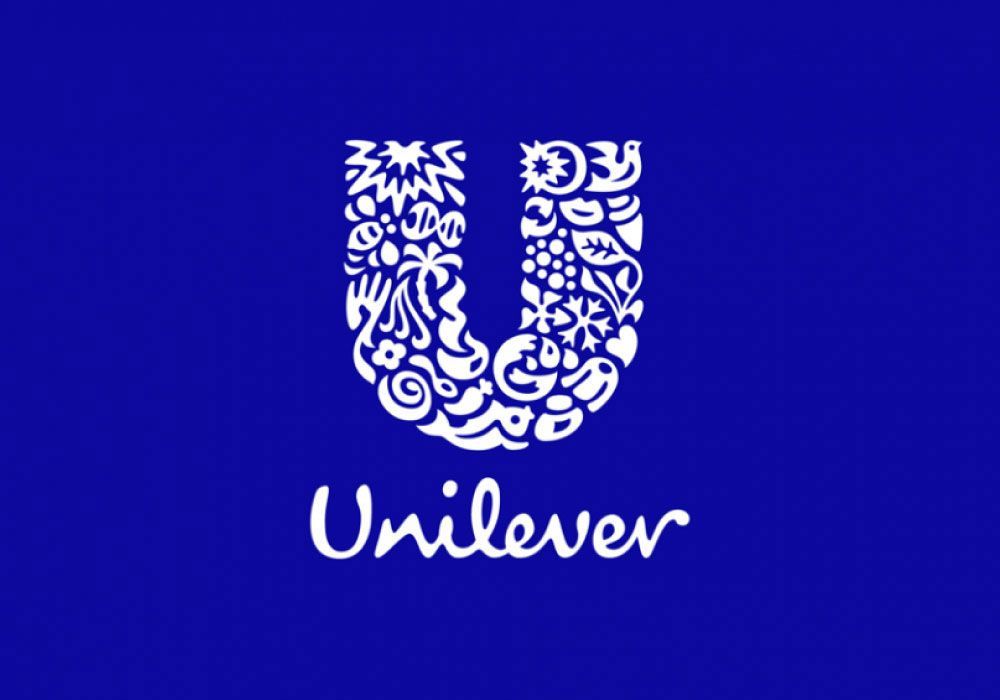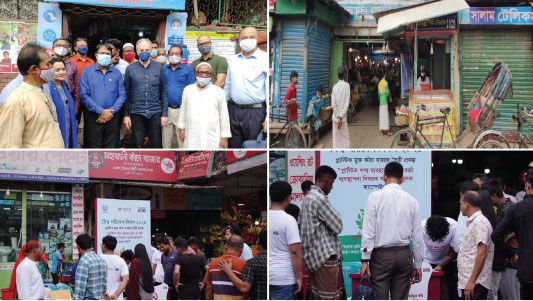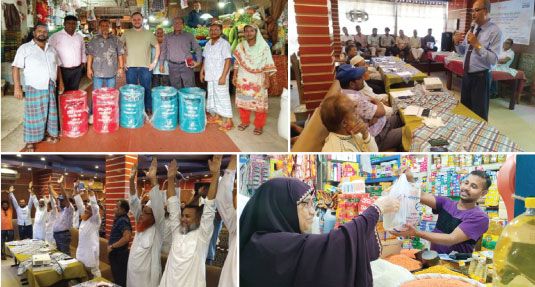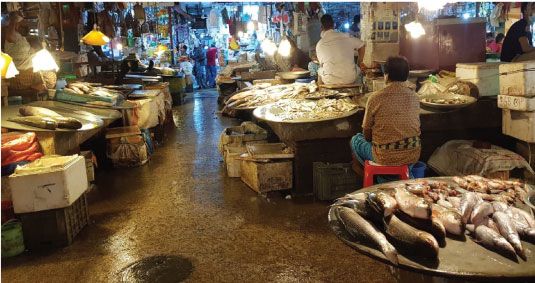- info@ficci.org.bd
- |
- +880248814801, +880248814802
- Contact Us
- |
- Become a Member
- |
- |
- |
- |
- |

Plastic pollution is a global crisis, with over 450 million tonnes produced annually, approximately 50% of which is single-use plastic, including plastic bags, straws, stirrers, and takeout clamshells. Only 9% of this plastic is recycled. Bangladesh like many other nations, is grappling with the challenge of plastic waste, particularly in the urban centres. Unfortunately, plastic waste management, especially urban plastic waste management in Bangladesh has yet to reach a uniform standard. Wet markets in Dhaka, where fresh produce, meat, and fish are sold to approximately 85% of the households, are particularly vulnerable to plastic pollution, as large amounts of plastic waste are generated from polyethene to disposable bags.
Unilever Bangladesh Limited (UBL), in collaboration with the Global Alliance for Improved Nutrition (GAIN), initiated a 4-month-long campaign in 4 of Dhaka's wet markets: Mohammadpur Town Hall Fresh Market, Mohakhali Fresh Market, Bonolota Fresh Market, and Islambagh Fresh Market. The primary objective of this campaign was to create a sustainable, clean, and plastic waste-free environment by enhancing waste management infrastructure, promoting recycling, and reducing plastic pollution through stakeholder awareness and community engagement, ensuring environmental protection and enhancing food safety.

Under this project, 250 market vendors were trained in waste segregation, personal health hygiene, safe food handling, and financial literacy, empowering them to adopt sustainable practices, and 190 bins were placed across the markets, resulting in a 30% improvement in waste segregation. Daily segregation of collected plastic waste, which was then sold to recyclers, was documented and reported monthly, totalling 2,603.61 kg of plastic waste collected. One of the key components of the campaign was to encourage consumers to use environment-friendly alternative and reusable bags. Further campaigns on World Environment Day and World Food Safety Day raised awareness about plastic pollution, reaching over 48,000 consumers through surveys, quizzes, and the distribution of eco-friendly corn starch bags for purchases over 500 Taka.

At the end of the campaign, the respective wet market vendors are continuing to segregate waste, and reduce the use of polythene bags, while consumers are bringing reusable bags from home. Waste is now disposed of in designated bins rather than being littered, resulting in noticeably cleaner market surroundings.

Tackling plastic pollution is a shared responsibility that hinges on raising awareness, fostering collaboration, and driving innovation. This campaign has demonstrated that when stakeholders and value chain actors are well-informed, positive behaviour change is not only possible but sustainable. The continued adherence to better practices by sellers and buyers post-campaign underscores the critical role of awareness. This model's success highlights its potential for adaptation and replication in other markets, with effective partnership and collaboration among all stakeholders. Equipped with the learnings of this campaign, we are determined to continue our efforts in creating a sustainable future for Bangladesh.





